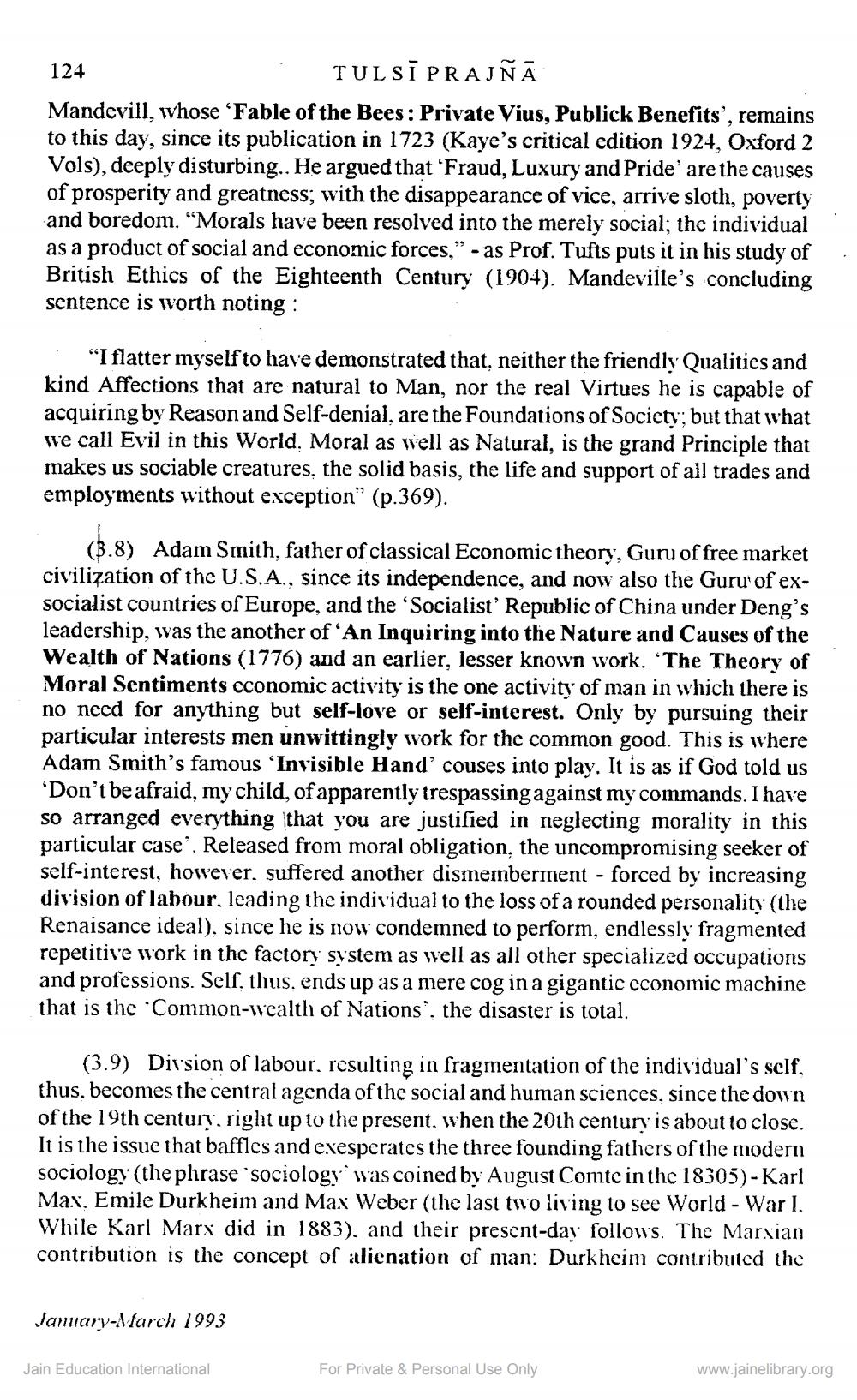________________
124
TU L SI PRAJ NA Mandevill, whose 'Fable of the Bees: Private Vius, Publick Benefits', remains to this day, since its publication in 1723 (Kaye's critical edition 1924, Oxford 2 Vols), deeply disturbing.. He argued that ‘Fraud, Luxury and Pride' are the causes of prosperity and greatness, with the disappearance of vice, arrive sloth, poverty and boredom. “Morals have been resolved into the merely social; the individual as a product of social and economic forces," - as Prof. Tufts puts it in his study of British Ethics of the Eighteenth Century (1904). Mandeville's concluding sentence is worth noting :
“I flatter myself to have demonstrated that, neither the friendly Qualities and kind Affections that are natural to Man, nor the real Virtues he is capable of acquiring by Reason and Self-denial, are the Foundations of Society; but that what we call Evil in this World, Moral as well as Natural, is the grand Principle that makes us sociable creatures, the solid basis, the life and support of all trades and employments without exception" (p.369).
Adam Smith, father of classical Economic theory, Guru of free market civilization of the U.S.A., since its independence, and now also the Guru of exsocialist countries of Europe, and the Socialist Republic of China under Deng's leadership, was the another of 'An Inquiring into the Nature and Causes of the Wealth of Nations (1776) and an earlier, lesser known work. 'The Theory of Moral Sentiments economic activity is the one activity of man in which there is no need for anything but self-love or self-interest. Only by pursuing their particular interests men unwittingly work for the common good. This is where Adam Smith’s famous 'Invisible Hand couses into play. It is as if God told us ‘Don't be afraid, my child, of apparently trespassing against my commands. I have so arranged everything that you are justified in neglecting morality in this particular case'. Released from moral obligation, the uncompromising seeker of self-interest, however, suffered another dismemberment - forced by increasing division of labour, leading the individual to the loss of a rounded personality (the Renaisance ideal), since he is now condemned to perform, endlessly fragmented repetitive work in the factory system as well as all other specialized occupations and professions. Self, thus, ends up as a mere cog in a gigantic economic machine that is the Common-wealth of Nations, the disaster is total.
(3.9) Divsion of labour, resulting in fragmentation of the individual's self, thus, becomes the central agenda of the social and human sciences, since the down of the 19th century, right up to the present, when the 20th century is about to close. It is the issue that baffles and exesperates the three founding fathers of the modern sociology (the phrase 'sociology was coined by August Comte in the 18305)- Karl Max, Emile Durkheim and Max Weber (the last two living to see World - War I. While Karl Marx did in 1883), and their present-day follows. The Marxian contribution is the concept of alienation of man; Durkheim contributed the
January March 1993
Jain Education International
For Private & Personal Use Only
www.jainelibrary.org




